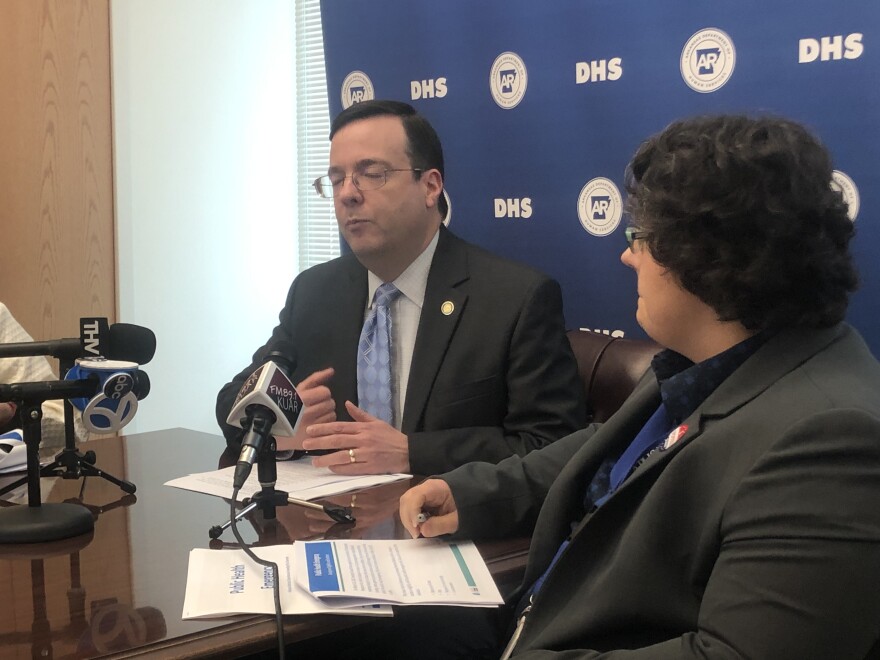As many as 386,000 Arkansans will have to renew their Medicaid coverage if the federal government ends the COVID-19 public health emergency.
Since January 2020, Medicaid recipients who otherwise would have been ineligible were protected from losing their health insurance coverage while the emergency is in effect. Federal officials must notify states by next Friday, Nov. 11, whether the emergency will end in mid-January or be extended into the spring.
Speaking with reporters Friday, Arkansas Department of Human Services Secretary Mark White said unwinding the public health emergency will be their largest effort since passage of the Affordable Care Act nearly a decade ago.
“When the public health emergency expires, we will face a huge undertaking with major challenges. We will be asking literally hundreds of thousands of Arkansans to actively participate by responding to us and by getting us the information that we need to renew and re-determine their Medicaid eligibility,” White said.
About 34% of the entire Medicaid population in Arkansas will have to re-determine their eligibility when the emergency ends.
Dawn Stehle, DHS Deputy Director for Health and State Medicaid Director, says Medicaid enrollees could lose their eligibility status for a number of reasons.
“Obviously, clients whose income now exceeds eligibility levels… it could be that they’ve not responded to us. It could be that they’ve had a change in the level of care, meaning that when they came to us, particularly for somebody that might have needed day-to-day support, they may be better and no longer need that level of services,” Stehle said.
The federal government has been providing states with more money to help offset the cost of maintaining coverage, she said, which will not continue after the public health emergency ends.
“In Arkansas, our match rate tends to be around 71%, which means the federal government puts up 71 cents of every dollar and typically we would put up the other 29 cents,” Stehle said. “Throughout the public health emergency they have then been putting up that extra 6.2%, which has then allowed the state to be able to draw down some enhanced federal funds.”
DHS has six months from the end of the emergency to finish re-determining eligibility for Medicaid recipients who chose not to voluntarily renew their coverage. Enrollees could begin losing coverage at the end of January.



